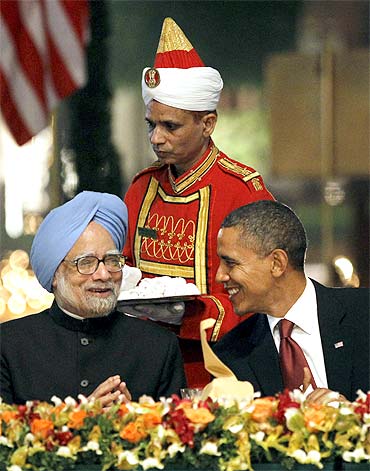
United States Senator and Texas Republican John Cornym, who is the founder and GOP co-chair of the Senate India Caucus, has lumped the Lashkar-e-Tayiba and China as the gravest security threats to India and the United States.
He also said that the common thread that catalyses this security imperative, which has to be jointly addressed by New Delhi and Washington, is Pakistan.
Cornyn, who kicked off a conference titled US-India Relations, A View from Capitol Hill, hosted jointly by the Centre for Strategic and International Studies' Wadhwani Chair in US-India Policy Studies and the Senate India Caucus, acknowledged, "President Obama did get his foreign policy priorities right when his first state dinner at the White House in 2009 was in honour of Prime Minister Manmohan Singh and he himself visited India about a year later."
Reportage: Aziz Haniffa in Washington, DC
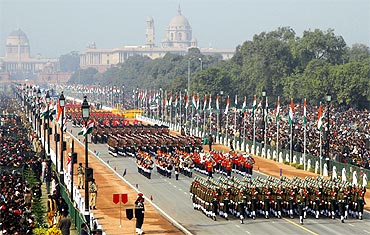
"But my concern today is not about the relationship between India and the United States -- which remains very strong -- but that our foreign policy perspective in the region is an outlook through a soda straw," he said.
Cornyn argued, "We should pull back a little bit more and expand our field of vision to include the regional and global realities that we face."
The influential lawmaker, who is a senior member of the Senate Armed Services Committee, noted, "For example, India is modernising its military forces and the US is actively helping India do so and it's important to realise why that's important to us and to them."
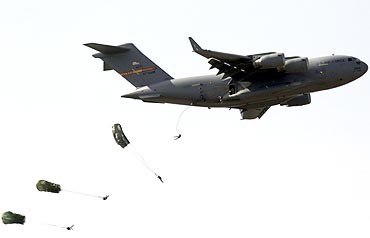
"Why did our two nations sign a ten-year defence agreement in 2005? Why does India now conduct more joint military exercises with the United States than with any other nation? Why did India see fit to buy six C-130 military transport aircraft in 2008 -- which at the time was the largest sale to date? Why did India -- just this week -- decide to purchase 10 C-17 Globemaster III aircraft? And why do a lot of Americans think what I think: That the United States should not only allow India to purchase the F-35 Joint Strike Fighter -- but also that we should encourage India to do so," he observed.
Cornyn said, "The answer to all these questions is pretty straight-forward -- the United States and India see the same regional and global security challenges."
He said, "The first security challenge is terrorism. In America, we associate 2001 with the 9/11 attacks. But in India, they remember that year for the terror attack on the Indian Parliament as well. More recently, we know, of course, in Mumbai in 2008, terrorists killed or wounded hundreds of Indian citizens and six Americans as well. So our two nations have suffered from violent extremists in similar ways."
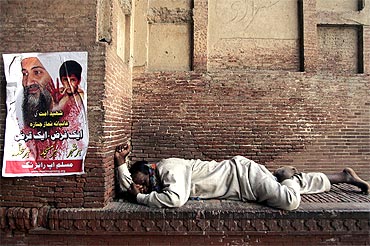
Cornyn acknowledged, "The death of Osama bin Laden was a huge victory in the war on terror, but I also believe that as President Obama has said, it is no time to 'spike the football.' Al Qaeda is not the only terrorist group that represents a threat. Other groups include: Jemaah Islamiya, Tehrik-e Taliban Pakistan; and of course, the Lashkar-e-Tayiba that was directly involved in the Mumbai attacks."
Cornyn said, "Some are recognising that the LeT has aspirations beyond South Asia," and noted that "Admiral Willard -- who leads US Pacific Command -- testified at the Senate Armed Services Committee in April that LeT is one of the largest and best-funded militant groups in the region; that India remains LeT's main target; but that LeT has also declared holy war on America -- and has attacked our forces in Afghanistan. Admiral Willard also said that we have evidence of LeT's presence in Europe, Canada, and even right here in the United States."
"LeT terrorists should be captured and brought to justice, and that's what India and the United States are doing," he said.

Cornyn complained, "Pakistan has moved much more slowly in prosecuting accused LeT terrorists they have in custody. They have brought charges against some of them, but they have not fully prosecuted any of them. The US and India must continue to press Pakistan to prosecute these individuals who were implicated in the Mumbai attacks."
"Terrorist groups like LeT are the primary non-state challenge that India and the United States have to deal with, but the state actor we both need to keep our eye on is China, and we know that our concerns are not alone," he wraned
Cornyn said, "Lots of China's neighbours are concerned about its military buildup and territorial aspiration".
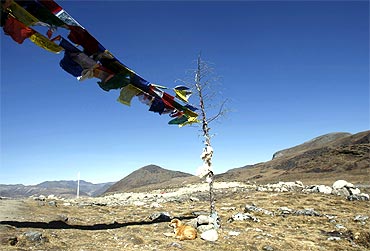
He pointed out, "Last year, China claimed the South China Sea as a 'core interest', which unsettled Vietnam, the Philippines, Indonesia, and lots of other nations. China renewed a long-running dispute with India over the borders of the Arunachal Pradesh region."
"And last week, Google publicly reported that a Chinese entity has been targeting the personal email accounts of US and South Korean government employees and Pakistan's defence minister recently revealed that they'd like China to build a naval base at Gwadar, Pakistan, which is already home to a new, strategically important port at the mouth of the Gulf of Oman," he said.
Cornyn argued, "Now, each of these actions represents a deliberate provocation. And together, they represent a pattern that we need to keep our eye on as well as other countries need to take as seriously as well."
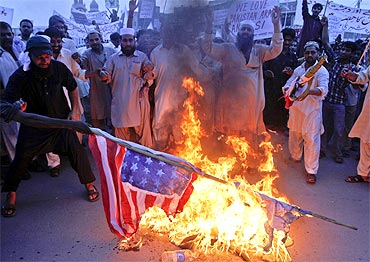
He said, "Both the terrorism challenge and the China challenge have something in common, and that's Pakistan. Secretary (Hillary) Clinton visited Pakistan in May and said that our relations were at a turning point, and I agree. Pakistan is being exploited by others -- both inside and outside its territory. And the time is now for Pakistan to start making much better choices."
Cornyn said, "This administration should not take its eye off of India or South Asia or that that relationship for granted. I believe it's important for the United States to continue to make our relationship with India a priority."
He said he hoped President Obama, "Will continue along the lines that he had started early on his administration."